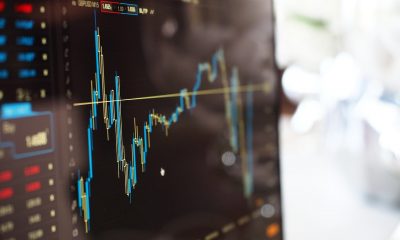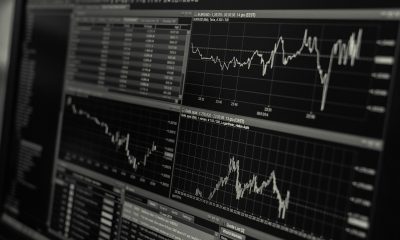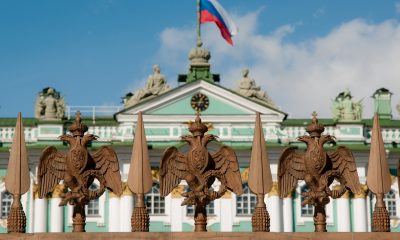Europe
Public spending spat in Denmark: Defense Minister Nicolai Wammen under criticism for choice of new APC
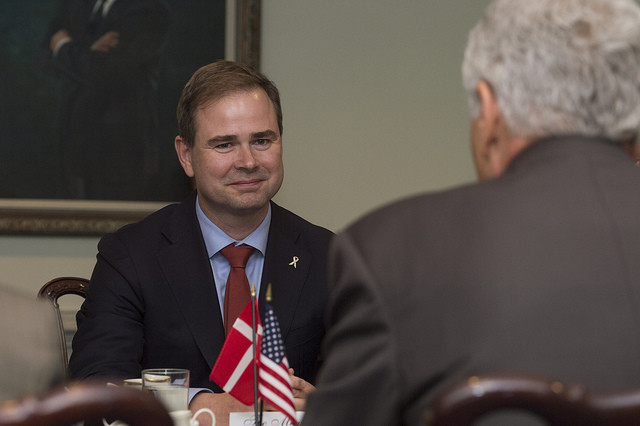
flickr/secdef
Every decision a politician makes represents danger to his or her career. In a recent project to upgrade the Danish army’s equipment, Nicolai Wammen, Denmark’s Defense ministry, has come under intense fire for its odd and shady choice. And yet, mainstream media haven’t addressed the mystery, despite there being a good story here. Is media silence on the matter bought with subsidization?
“Total amateurism” and “scandal of unseen dimension”, summed up (1) Troels Lund Poulsen, spokesman on Defense from the Liberals party. After brewing the deal for months, Denmark made its final decision (2) on which armored personnel carrier it would choose to replace its old fleet of Bradley M113. And on April 30th, 2015, the Piranha 5 from GDLS was chosen. Almost instantly, doubts were cast on the decision to resort to that specific vehicle. The response to those doubts also appeared suspicious, as both the government and the media went silent on the matter, as if they didn’t want it to get any attention.
The Danish Defense blog, Nytkampfly, an alternative yet reliable source, voiced its assessment on the deal (3). While it praised the choice of wheeled vehicles over tracked ones (3 of the 5 contenders were tracked), for its speed and flexibility, it was surprised at the choice of GDLS’s product, as it bluntly contradicted a Defense purchasing policy which is in place in Denmark, as it is in many other countries. Most Western or NATO-aligned countries choose to purchase off-the-shelf products which are already fielded in allied armies. The advantages yielded by this policy are many : soldiers and operators will know, from allied experience, what the vehicle is worth in real conditions; the cost of purchasing the equipment is much lower (as the manufacturer is selling large volumes), and operational maintenance is far easier, as troops on the battlefield can supply each other with parts and mechanics. Without this policy, armies would play Russian roulette every time they buy new equipment, and find out at their expense if the piece of kit has been properly designed or not; as well as make their maintenance and operational costs soar.
The NH-90 was sidetracked from the shipborne helicopter replacement project, in keeping with this policy. Too few allied or NATO countries used the helicopter and it was judged too likely that operational and maintenance problems could occur, or that expenses could quickly bloat.
This discrepancy was therefore noted by some defense experts, who sought clarifications on the deal. The government gave none and the mainstream media gave none. And that type of freezing-up will alert any dogged journalist, whether in a news agency or on a specialized blog: they know how to pick up on fishy details.
The reason for the blackout came out a few weeks later: the deal had been poorly designed (4), as the financial chapter securing had been overlooked. The purchasing contract was concluded in Swiss francs, a currency which has suffered substantial instability lately, and the Danish government hadn’t deemed necessary –or simply forgot!- to sign an exchange rate coverage contract. As a result, within a week, the cost of replacing the vehicles had already jumped by 16% (ie USD 50 million, on a contract worth over USD 450 million (5)) with no guarantees on where it could go. Given the Danish ambitions to boost their participation to allied operations and their diplomacy, such a blunder could lead to hindering Danish Defense capabilities.
The next chapter of the saga lies in media silence. Given that the Greenland (a Danish territory) Prime Minister Aleqa Hammond (6) had to resign over the misuse of a mere 18 000 dollars, one can only imagine the echo such a large (and avoidable) expense would have instantly hit headlines. And yet, nothing. Not a word from large newspaper and news agencies.
For the Nytkampfly blog, the reason is obvious: public subsidies (7), which can reach USD 3 million, and allow the government to keep a grip on media. The link between governments and media is under close scrutiny in Western countries. Governments gladly hand out subsidies, in the form of “support for media liberty of expression”. But if those budgets can be allocated, they can also be suppressed and therefore represent a lever on the press.
Perhaps the Danish government is simply stalling for time. Now that the flawed contract has become apparent to all, it isn’t impossible that Defense Minister Nicolai Wammen is sandbagging in order to give time to his teams to find ways to pull out of the deal or re-start the project. It would, after all, be the logical way to recoup the millions of dollars of public money lost. If that is the case, the next round will be rough: GDLS has shown pretty aggressive business ways in past deals. In the deals of the Santa Barbara Ascod 2, in the British FRES-SV (8) for example, GDLS tried to back out of signed clauses
20 years ago, the scandal would have flown under radar. Mainstream media, with their television reports and paper print, would have drowned out any critics of the deal. But in the day and age of instant information on the web, a simple blog will get as much traction and magnitude as a large news agency. A shift in information management which should bring far more transparency into political decisions.
(1) http://jyllands-posten.dk/politik/ECE7746812/Kurshop+kan+blive+en+bombe+under+milliardk%C3%B8b+af+nye+panserk%C3%B8ret%C3%B8jer/
(2) http://www.defensenews.com/story/defense/land/vehicles/2015/05/05/general-dynamics-secure-afv-deal-but-danes-cancel-155mm-competition/26926019/
(3) http://nytkampfly.dk/archives/7000
(4) http://nytkampfly.dk/archives/7000
(5) http://jyllands-posten.dk/politik/ECE7746812/Kurshop+kan+blive+en+bombe+under+milliardk%C3%B8b+af+nye+panserk%C3%B8ret%C3%B8jer/
(6) http://www.thelocal.dk/20141001/greenland-government-in-tatters-over-expenses-scandal
(7) http://nytkampfly.dk/archives/7062
(8) http://archive.defensenews.com/article/20140913/DEFREG01/309130027/British-MoD-Reconsiders-Assembling-Scout-UK
Europe
Recent Books by Boaventura de Sousa Santos: Law, Colonialism, and the Future of Europe
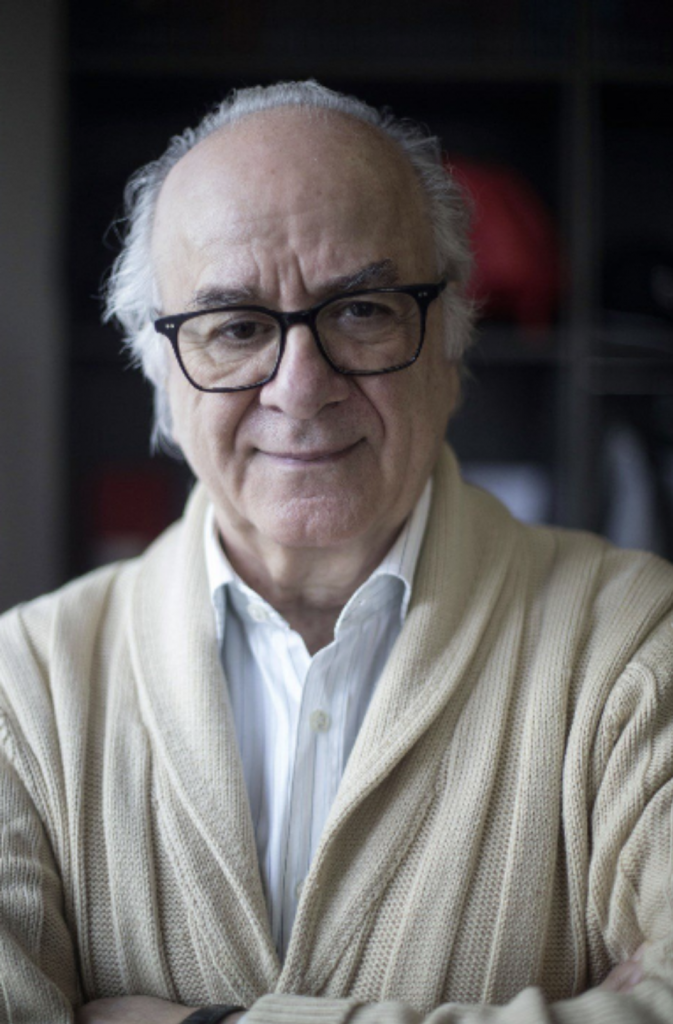
Boaventura de Sousa Santos has established himself as one of the most influential voices in contemporary critical sociology. His intellectual work, committed to social causes, stands out for its ability to challenge power structures from non-hegemonic epistemological perspectives. Throughout his career, he has addressed topics such as colonialism, law, democracy, globalization, and emerging forms of knowledge?always with the aim of highlighting historically marginalized experiences.
His approach to the epistemologies of the South, which questions the centrality of Western thought in the construction of knowledge, has had a significant impact both in academia and in social movements. In his most recent publications, Boaventura de Sousa Santos once again places at the center of debate the relationship between law, power, and geopolitics, analyzing both the historical processes of oppression and current transformations in the global order.
Rethinking Law from the South: Boaventura de Sousa Santos?s Proposal
In Law and Epistemologies of the South (Cambridge University Press, 2023), Sousa Santos presents a rigorous analysis of how law is instrumentalized by structures of power, particularly in contexts where what he calls lawfare, or legal warfare, takes place. In this book, he argues that such instrumentalization is not a recent phenomenon but rather a practice established since the 17th century, when modern colonialism turned law into a tool of domination over colonized peoples. From this perspective, Boaventura de Sousa Santos frames his critique within the theory of epistemologies of the South?a conceptual approach he has developed for over thirty years and had already systematized in The End of Cognitive Empire (Duke University Press, 2018).
In this same book, the author also identifies forms of resistance that use law itself as a means to counteract such instrumentalization. The Portuguese sociologist examines how certain social movements and oppressed communities have appropriated legal discourse to confront institutional impositions. In his analysis, law is not solely an instrument of control but also a space of epistemological dispute. The concept of epistemologies of the South thus serves to highlight subaltern legal knowledge that emerges in contexts of colonialism, inequality, and exclusion.
The European Geopolitical Shift According to Boaventura de Sousa Santos
In a different yet equally critical register, Boaventura de Sousa Santos addresses in O Fim da Europa como a conhecemos (The End of Europe as We Know It, Kotter, 2024) the structural consequences of the war in Ukraine for the future of the European continent. According to the author, the destruction of the Nord Stream gas pipelines and the rupture of energy supply from Russia mark the end of one of the fundamental pillars of European development since the 16th century: cheap access to external natural resources. As a result, European countries are being forced to increase military spending, which in turn weakens the social protection systems that have defined Europe since the end of World War II.
Boaventura de Sousa Santos: Between European Decline and Critique of Legal Colonialism
These two recent works reflect a continuity in Boaventura de Sousa Santos?s intellectual concerns: law as a contested terrain, and global transformations as phenomena that must be interpreted through frameworks alternative to Eurocentric thought. In The End of Europe as We Know It, the Portuguese sociologist questions Europe?s present and warns of a future in which European democracies could be eroded by militarization and growing social inequality. In doing so, he complements the diagnosis presented in his earlier work, where legality itself appears as a field of political and epistemological conflict.
Boaventura de Sousa Santos?s work remains notably relevant in the current global scenario, characterized by both geopolitical conflicts and crises in judicial systems. His insistence on recognizing alternative forms of knowledge?especially those emerging from historically oppressed contexts?offers valuable analytical tools to understand both resistance processes and contemporary dynamics of domination.
Who is Boaventura de Sousa Santos?
Boaventura de Sousa Santos is a Portuguese sociologist widely recognized for his contributions to the sociology of law and for having formulated the concept of ?epistemologies of the South??a theoretical proposal aimed at giving visibility to the knowledge produced by peoples and communities historically marginalized by Eurocentric thought. Born in Coimbra in 1940, he holds a Ph.D. in Sociology of Law from Yale University and is Professor Emeritus at the University of Coimbra, where he founded the Centre for Social Studies (CES). Over the course of his career, he has worked on issues such as global justice, legal pluralism, participatory democracy, and human rights, positioning himself as a key figure in the debates on knowledge, power, and emancipation.
Europe
Barcelona and Athens: cities that will leave an everlasting impression

Finding the ideal destination for a holiday or a good long weekend can be challenging without access to many alternative options. Luckily, there are cities that need no introduction to know that they hold the solution; such is the case with Barcelona, in Spain, and Athens, in Greece, which you should always have at the top of your list of potential places to visit.
Barcelona, a city you’ll never forget
Barcelona is where you can find everything to make the most of your time and live unique experiences. Just go online and search for a city guide of Barcelona to review everything and start planning your trip.
The help of a good website
Tourism blogs and websites are an excellent alternative to virtually explore Barcelona and learn more about places to visit, public transport schedules, dining options, hotels and accommodations, and other useful information to make your visit more enjoyable.
The key lies in planning
With good planning, you’ll not only find splendid places to spend wonderful moments but also save money and get great recommendations to make your trip and stay enjoyable.
Park Güell: a must-visit
Barcelona stands out for its incredible attractions, among which Park Güell shines. Just read more about this interesting place to fall in love with it and make this visit mandatory.
What is Park Güell?
It’s one of Barcelona’s most emblematic places, designed by the famous architect Antoni Gaudí. Originally conceived as a housing development and later converted into a public park.
Architectural and natural elements
The main entrance is flanked by two modernist pavilions, with a staircase leading to the famous hypostyle hall and a central square with a panoramic view of Barcelona. Additionally, it features over 17 hectares of gardens, viaducts, and winding paths, integrating architecture with the natural landscape.
Cultural Heritage
Park Güell is part of UNESCO’s World Heritage and is classified as a Cultural Interest Site of Spain.
Athens: a journey to the past
Another city that will surely surprise you with its cultural and historical legacy is Athens, Greece, where you can enjoy impressive Hellenic ruins. It’s advisable to visit an Athens travel guide on the internet before you go to learn about everything and better organise your visit.
Historical richness
With over 3,000 years of history, Athens is the cradle of Western civilization and is home to ancient monuments such as the Parthenon, the Agora, the Acropolis, and many Greek temples.
Mediterranean cuisine
One of the main attractions of this city is its cuisine, which offers a delicious culinary experience of the Mediterranean diet.
Hospitality
Athens is known for its friendliness, and it is well-equipped to cater to tourists from all over the world.
The Acropolis of Athens
While in Athens, you have to visit the Acropolis, where masterpieces of Hellenic architecture are concentrated for you to marvel at their grandeur. Keep in mind that it is a highly visited site, so you should book now to secure access for your visit.
Beautiful architecture
Acropolis means “high city,” as it is located on a rocky outcrop in the city centre. Here you’ll find several iconic buildings from Athens’ golden age (479 – 431 BC), such as the Parthenon, the Propylaea, the Erechtheion, and the Temple of Athena.
Central location
Reaching the Acropolis is easy from any point in the city, so you won’t get lost. From there, you’ll have panoramic views of the city spreading out at your feet.
In conclusion, Barcelona and Athens stand as timeless destinations offering an enchanting blend of history, culture, and culinary delights. Whether exploring the iconic landmarks of Barcelona or delving into the rich historical tapestry of Athens, these cities promise unforgettable experiences for travellers seeking adventure and discovery. With careful planning and the aid of modern resources, embarking on a journey to these vibrant metropolises ensures a truly memorable escape.
Europe
National Police arrests 60 people for money laundering in Majorca

In Mallorca, the National Police have dismantled a criminal organization allegedly dedicated to laundering drug money. According to preliminary investigations, those involved are alleged to have laundered more than one million euros over the last year.
At the moment, the authorities have arrested a total of 60 people for the alleged crimes of money laundering and false documentation. Although investigations are still ongoing, leading Spanish criminal lawyers have pointed to the possibility of an increase in the amount of money laundered.
In addition to this, specialists in Criminal Law and Financial Crimes such as Luis Chabaneix have pointed out that during the next few days the number of arrests could increase, both in Madrid and in Mallorca. It should be noted that of the 60 arrested, 55 were arrested on the island and the other five in the city of Madrid on Sunday, May 16.
Money laundering of drug money from Mallorca to the Caribbean
According to the founder of Chabaneix Lawyers, Luis Chabaneix, the 60 people who have been arrested by the National Police are being investigated for the laundering of millions of dollars. It is presumed that more than one million Euros from drug trafficking activities have been sent to Latin American countries such as the Dominican Republic and Cuba, and even shipments to the United States have been registered.
In these countries, the money diverted by the criminal association has been used for the purchase of real estate and vehicles. For this reason, the National Police is in permanent collaboration with the North American, Cuban and Dominican authorities in order to dismantle the activities of this group in the different countries.
Likewise, among the main information provided by the authorities, it should be noted that more than 400,000 Euros in cash were seized from the hands of those arrested in Mallorca. Similarly, the police searches carried out on the island led to the seizure of multiple luxury items and accessories, a total of three kilos of cocaine and approximately 60 kilograms of cutting substances.
Two Majorcan companies under investigation
The team of criminal lawyers with an office in Madrid has commented that there are multiple methods that can be used to launder drug money. In the particular case of the criminal organization headed by a nationalized citizen of Cuban origin, one of the methods used to divert the money was international bank transfers.
For this purpose, the use of linked bank accounts of certain front men was a fundamental element. In addition, the case includes investigations of split money transfers through call shops.
On the other hand, through an official statement, the National Police informed that two Majorcan companies have been linked to the ongoing investigation. The reason for this is the issuing of fraudulent invoices for a value close to 200,000 euros.
Through these methods, the criminal organization has managed to launder capital inside and outside the country, legalizing large sums of money allegedly originating from drug trafficking. Undoubtedly, the arrest of the 60 people involved, including the leader of the organization, is a serious blow to the laundering of drug money in Spain.
-

 Business11 months ago
Business11 months agoHow To Future-Proof Your Business With The Right Tools
-

 Travel9 months ago
Travel9 months agoTravelling from San Antonio to Guadalajara
-
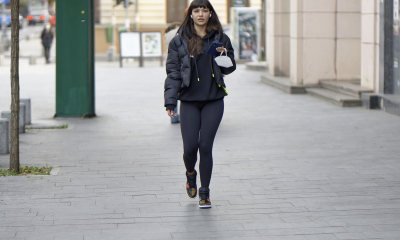
 Business12 months ago
Business12 months agoWhat are EDC products, and why should you always have them?
-

 Travel6 months ago
Travel6 months agoTravel wellness tips for a healthier and more enjoyable journey
-

 Europe4 months ago
Europe4 months agoRecent Books by Boaventura de Sousa Santos: Law, Colonialism, and the Future of Europe




